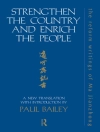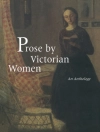Émile Zola’s ‘The Complete Works of Émile Zola’ offers readers an extensive exploration of the author’s pioneering contributions to literature, particularly within the framework of Naturalism. This collection encompasses Zola’s most significant novels, essays, and critical works, vividly portraying the complexities of human experience as shaped by environmental and social influences. Through a stark, unflinching prose style, Zola dissects the realities of life in 19th-century France, illustrating themes of class struggle, morality, and the human condition in an immersive tapestry that remains compelling and relevant. Zola, a deeply committed social realist, was influenced by his observations of the turbulent societal changes of his time, including the rise of industrialization and its impact on the working class. His dedication to revealing the often grim realities of life stemmed from his belief in literature’s power as a tool for social reform. Zola’s own experiences, from his humble beginnings to his passionate involvement in political and social issues, shaped his literary voice and thematic concerns, which resonate throughout this expansive collection. For readers seeking a profound understanding of human nature through vivid storytelling and social critique, ‘The Complete Works of Émile Zola’ is an essential addition to any literary library. Zola’s masterful command of narrative and his unwavering commitment to his subjects make this compilation not only a cornerstone of French literature but also an enduring reflection of society’s struggles.
लेखक के बारे में
Émile Zola (1840-1902) was a French novelist, playwright, and journalist, renowned as a pivotal figure in the development of literary naturalism. His works stand out for their piercing examination of society, unfaltering detail, and psychological depth. Zola’s literary career blossomed with the publication of ‘Thérèse Raquin’ (1867), which established him as a formidable writer that eschewed romanticism in favor of realism. However, it was his monumental 20-novel cycle, ‘Les Rougon-Macquart’ (1871-1893), that cemented his reputation. The series scrutinizes the effects of environment and heredity on two branches of a family during the Second French Empire. Zola’s masterpieces, such as ‘Germinal’ (1885) and ‘L’Assommoir’ (1877), present vivid depictions of working-class life and the impact of industrialization. An integral part of his oeuvre is ‘J’Accuse…!’, an open letter published in 1898, which implicated the French government in the notorious Dreyfus Affair and showcased his commitment to social justice. Zola’s influence extended beyond literature into the political sphere, advocating for truth and principle. His naturalistic approach espoused authenticity and empirical observation, shaping literature and inspiring subsequent generations of writers.












